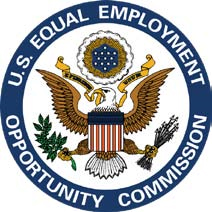What Employers Need to Know or even better - Never Forget!
Based on a joint publication of the Equal Employment Opportunity Commission and the Federal Trade Commission, here are a few pointers that all employers should keep in mind when running Background Checks.
When evaluating a pool of applicants there are multiple
agencies (EEOC, FTC, FCRA…) looking over your shoulder making sure you are
compliant with all of their laws and regulations. That is certainly not a
pleasant position to be in, yet it is inevitable. Businesses need qualified
candidates to fulfill their work load, so what can you do (as a business) to
ensure the best candidates while avoiding lawsuits and distress?
As stated on the publication, Background Checks: What Employers
Need to Know, “When making personnel decisions - including hiring,
retention, promotion, and reassignment - employers sometimes want to consider
the backgrounds of applicants and employees. For example, some employers might
try to find out about the person's work history, education, criminal record,
financial history, medical history, or use of social media. Except for certain
restrictions related to medical and genetic information (see below), it's not
illegal for an employer to ask questions about an applicant's or employee's
background, or to require a background check.”
Pretty straight forward, yet the details on the “certain
restrictions” can go on for pages. That is why business, like yourselves, rely
on a CRA (Consumer Reporting Agency) like PDA Investigations to do the “heavy
lifting” and provide you with the most accurate, reliable, and useful
information that is available. It's always a good idea to review the laws of
your state and municipality regarding background reports or information because
some states and municipalities regulate the use of that information for
employment purposes.
A good summary of key elements mentioned are:
Make sure you’re treating everyone equally. That
is why we recommend the use of defined packages based on your industry needs.
Tell the applicant or employee you might use the
information for decisions about his or her employment. This is a Disclosure
Agreement and must be in writing and in a stand-alone format. It is recommended
to use in-house counsel or other legal advice to ensure your documents are in
compliance and do not combine other terms or agreements on this form.
Get the applicant’s or employee’s written
permission to do the background check. This is an Authorization and Release
form, which must be in clear and conspicuous wording.
It is also good to remember the “Ban-the-Box” movement. (Check
our November blog post on this subject.) Avoid costly lawsuits by omitting questions
related to criminal history from your company job application(s).
To read more about the publication and adverse action
requirements go to: https://www.ftc.gov/tips-advice/business-center/guidance/using-consumer-reports-what-employers-need-know.





